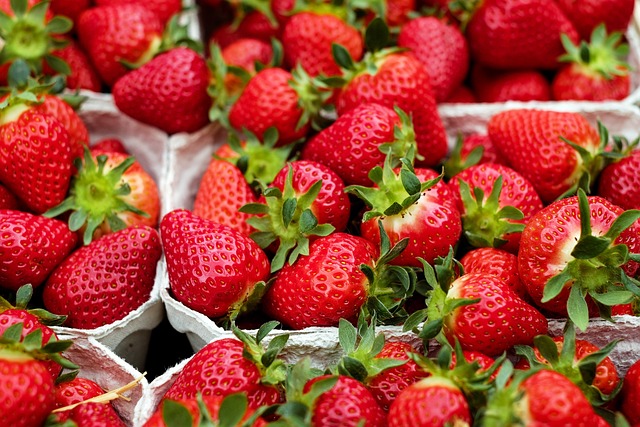A Guide to Natural Probiotics: Foods You Can Incorporate Into Your Daily Diet
Probiotics are living microorganisms that can benefit your gut health when ingested. These good bacteria can help regulate digestion, boost your immune system, and even improve your mental health. While supplements are available, natural sources of probiotics are always the best way to incorporate them into your daily diet.
1. Yogurt
Yogurt is the most commonly known probiotic food. It is made by fermenting milk with bacteria such as Lactobacillus acidophilus and Bifidobacterium animalis, which convert lactose, the milk sugar, into lactic acid. This creates the thick and creamy texture you love in yogurt. When purchasing yogurt, choose the plain version to avoid added sugars. You can add natural sweeteners such as honey or fruits to it if you like.
2. Kefir
Kefir is a fermented milk drink similar to yogurt but with a thinner consistency. It is made by adding kefir grains, which are a combination of bacteria and yeast, to milk. The grains break down the lactose, turning it into lactic acid, resulting in a tangy and slightly effervescent taste. Kefir contains more strains of bacteria and yeasts than yogurt, making it a more potent probiotic source.
3. Kimchi
Kimchi is a spicy Korean side dish made from fermented vegetables such as napa cabbage, radish, and scallions. The fermentation process is done with the help of lactic acid bacteria, which create a sour and pungent flavor. Kimchi is not only a probiotic food but also a rich source of vitamins A and C, as well as fiber. You can add it to stir-fries, salads, or sandwiches to add a punch of flavor and nutrition.
4. Sauerkraut
Sauerkraut is a traditional German dish made from fermented cabbage. The fermentation process is done with the help of lactic acid bacteria, which give sauerkraut its distinct sour taste. Like kimchi, sauerkraut is also a rich source of fiber and vitamins such as C and K. You can use it as a topping for hot dogs or sandwiches, or as a side dish for meats and fish.
5. Miso
Miso is a Japanese seasoning made by fermenting soybeans with salt and a mold called Aspergillus oryzae. The mixture is then aged for several months to produce a thick paste. Miso is commonly used in soups, stews, and marinades to add a savory and umami flavor. It contains a variety of beneficial microorganisms that can improve your gut health and boost your immune system.
6. Tempeh
Tempeh is a soy-based food that originated in Indonesia. It is made by fermenting cooked soybeans with a mold called Rhizopus oligosporus, which binds the beans together into a cake-like form. Tempeh is a good source of protein, fiber, and probiotics. It has a nutty and earthy flavor that can be used as a meat substitute in stir-fries, sandwiches, and salads.
7. Kombucha
Kombucha is a fermented tea drink that originated in China. It is made by adding a SCOBY (symbiotic culture of bacteria and yeast) to sweetened tea. The SCOBY breaks down the sugar and turns it into carbon dioxide and organic acids. This creates a slightly effervescent and tangy drink that is rich in probiotics, antioxidants, and organic acids. Kombucha can be enjoyed on its own or mixed with other juices to create a refreshing and healthy beverage.
Adding natural probiotics to your daily diet is an easy and effective way to improve your gut health and overall well-being. These foods are not only delicious but also full of beneficial microorganisms that can aid in digestion and boost your immune system. So, try to incorporate some of these probiotic-rich foods into your daily meals and see the difference it can make!







